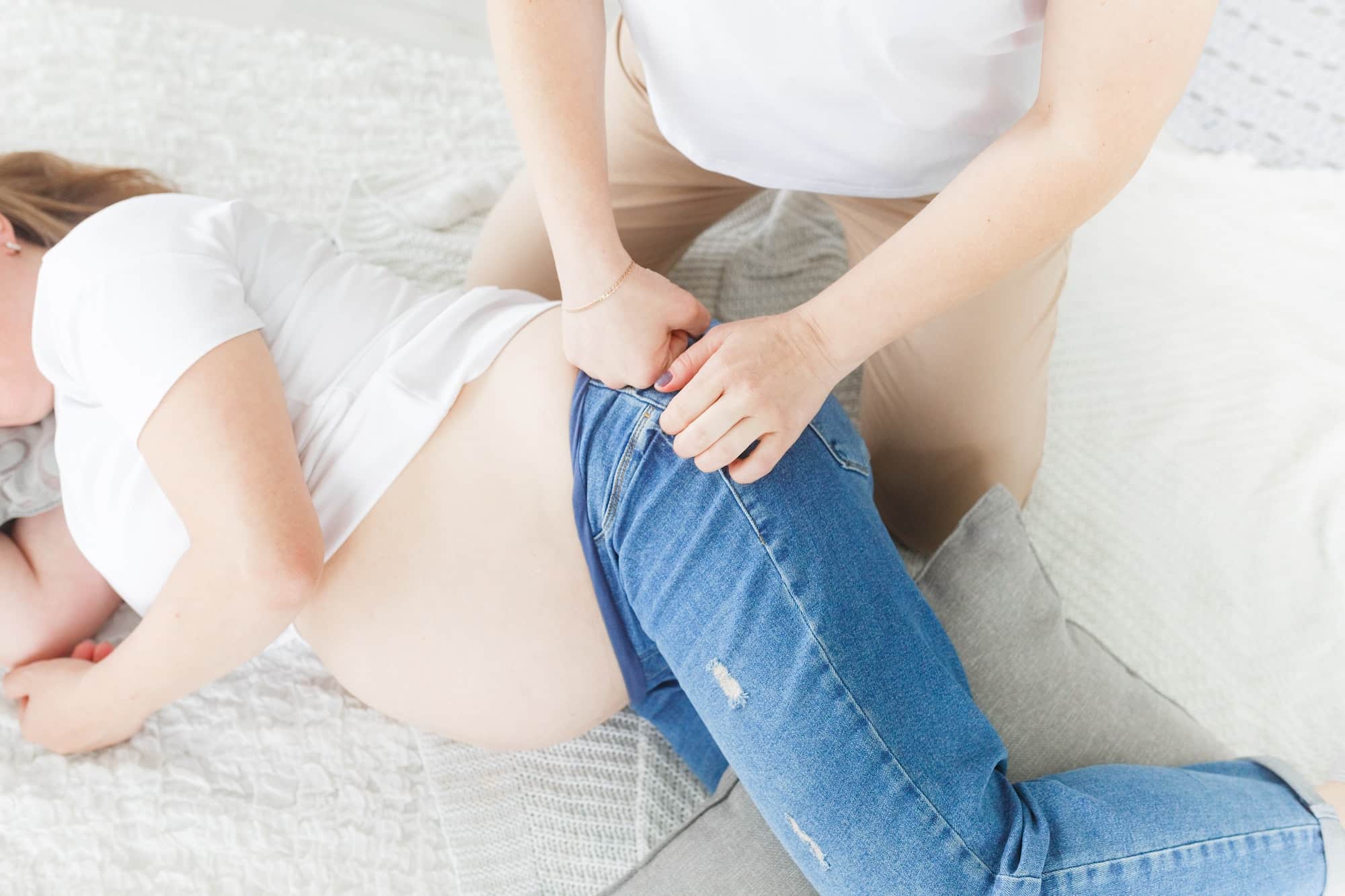It’s becoming all the more common to have a Doula in the delivery room. But should you, if you’re having your baby at home? Here’s when to hire a Doula, and some tips for hiring one.
More and more mothers are choosing to hire doulas to help during childbirth and reduce the need for medical intervention. Although doctors and midwives tend not to interfere too much with the delivery process these days, a doula can provide that extra veneer of insurance against medicated birth.
The right doula can provide the much needed support during labor and childbirth. They’ll ensure you get the birth experience you want, without undue medical interference or induced labor. Perhaps best of all, the right doula won’t judge your decisions about pain relief, or anything else.
Should you hire a doula? First, let’s find out what exactly a doula does.
What is a Doula?
A doula is a trained pregnancy companion that helps mothers and families have a healthy and pleasant experience during delivery. The doula provides physical, informational and emotional support to expectant mothers in labor, as well as before and after childbirth.
Some doulas specialize in fertility, solely childbirth or postpartum services.
- Fertility doulas can help during conception. Young couples struggling to get pregnant may find these doulas particularly helpful.
- A birth doula provides encouragement and support during pregnancy and labor. However, their services end at childbirth.
- Postpartum doulas assist mothers who have just given birth. As the name suggests, their services last for the postpartum period – the first few weeks after the child is born.
The doulas we work with at MidWife360 are full-spectrum doulas, capable of providing continuous assistance throughout the whole process. We strongly recommend you stick with one doula for conception, labor and childbirth to make the transitions as smooth as possible.
It’s important to note that a doula is not a midwife. If you already have a midwife as a neonatal medical practitioner, you can still hire a doula since their jobs differ.
Unlike a midwife, or OB/GYN, a doula is not authorized to perform medical procedures or prescribe medication. Also, a doula isn’t required to be licensed, although many have certificates.
Doulas provide physical and emotional support to mothers during childbirth, as they are not involved in the medical aspects.
What exactly does a Doula Do?
A doula is a treasure trove of experience in pregnancy and childbirth. Though they lack formal medical training, they possess a great deal of expertise in relaxation practices, breathing techniques, and labor positioning.
Here are a few of the ways a doula can provide support during labor:
- Your doula will meet with you a few times before your due date to walk you through the basics of childbirth, especially if you’re a new mother. During this period, your doula will learn more about your preferences and how best to support you.
- During labor and delivery, a doula will help you ease stress and manage the pain of contractions. Doulas also help expectant mothers for a period of time before delivery to reduce the risk of unnecessary medical interventions.
- A doula can help you with pain management techniques. They may try several combinations of non-medical techniques such as aromatherapy, reflexology, massage, music or mantras.
- Your doula will act as your advocate in the vulnerable stages of labor and immediate postpartum care. They’ll make sure your voice is heard and your preferences are respected.
When you hire a good doula, your co-parent or any other coach will not be relegated to the background. Doulas enhance the voices of your family members and make them feel relaxed, which helps you relax.
How does the Doula Process Work?
If you’re planning to hire a doula, it’s a good idea to get one early enough so you can get to know each other. Your first meeting with your doula should be around the seventh month of pregnancy.
Both of you will discuss whether you want a drug-free pregnancy, or a particular type of pain management medication. You’ll also discuss matters such as preferred labor techniques and other items in your birth plan.
When your date is due, your doula will offer moral support and a soothing voice of experience for you and your family members to feel at ease. After childbirth, your full-spectrum doula will make one or two follow-up visits to make sure you and your baby are doing okay.
When to Hire a Doula
At MidWife360, we strongly recommend you hire a doula especially if this is your first pregnancy. A doula is the best way to make sure your birth plan is followed in the delivery room.
Even if you are giving birth at home, you should still hire a doula. This way, the roles are clearly spelt out – your midwife will see to the medical side of things, while the doula can provide constant encouragement and cheerleading every step of the way.
The doulas we work with are trained to support natural, unmedicated births, as well as those involving pain medication. They don’t judge you for your choices, they are there to provide support and encouragement.
Studies have shown that hiring a doula can
- Cut down time spent in labor
- Reduce anxiety and stress levels of the mother and family members
- Improve mother-baby bonding after birth
MidWife360 doulas are also lactation consultants, so new parents have a higher chance of successful breastfeeding.
About the Doulas at MidWife360
At MidWife360 we have two recommended doulas we work with to provide moral support to expectant mothers. Jojo and Gina are experienced homebirth mommas who are committed to making you have the most healthy and comfortable labor experience possible.
They both have considerable experience with all matters concerning childbirth, including conception, pregnancy, labor and delivery. Hiring a doula from MidWife360 ensures your home birth will utilize the best methods of both traditional and modern medicine.
Want to meet Jojo and Gina? Call (561) 705-1022, or browse our website to read their bios.
The midwife will take care of the medical aspects of labor, while the doula will provide support and encouragement throughout.
Doulas provide physical and emotional support to mothers during childbirth, as they are not involved in the medical aspects.
Your doula will meet with you prior to your due date to explain childbirth, especially for first time mothers.
Your doula will provide moral support and experienced advice when your due date arrives, helping you and your family feel calm.
MidWife360 doulas are also lactation consultants, so new parents have a higher chance of successful breastfeeding.
The midwife will take care of the medical aspects and the doula will provide emotional support throughout labor.
A doula is the best way to ensure your birth plan is followed in the delivery room.





